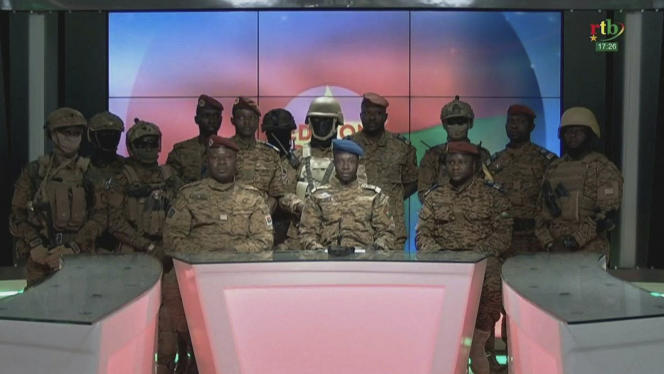The coup began when hooded soldiers seized control of Radio Télévision Burkina (RTB), the state-owned national broadcaster in Ouagadougou, the capital, on 24 January. A few hours later, the military announced on RTB that Roch Marc Christian Kaboré, the country’s president since 2015, had been ousted. Soldiers then screened everyone entering RTB and made journalists read out their communiqués on the air.
In the days prior to the coup, journalists had already been obstructed and threatened during the munities staged in several military barracks to demand more appropriate resources for combatting Burkina Faso’s armed Jihadists.
While photographing outside the Sangoule Lamizana army camp in Ouagadougou on 22 January, freelance journalist Henry Wilkins and Associated Press reporter Sam Mednick were accosted by solders from the camp, who pointed their guns at them, confiscated their equipment and detained from for about 30 minutes.
Local and international media, and Access Now, an international NGO that defends digital rights, reported that the Internet was disrupted the same day. The director of an online media outlet confirmed to RSF that his media was badly hit by a long cut in Internet service on 23 January.
Ibrahim Compaoré, a journalist with the privately-owned TV channel LCA, had to be hospitalised for treatment to the arm injury he sustained when hit by a projectile while covering a demonstration in Ouagadougou on 22 January in protest against insecurity in Burkina Faso.
“On the day after military leader Paul-Henri Damiba’s first address, we remind him that the junta must protect journalists against all types of attacks and harassment, including Internet cuts, and must ensure that the media are free to work,” said Sadibou Marong, the director of RSF’s West Africa bureau. “Journalism is already badly hampered in this country as a result of the insecurity and the presence of armed groups in the Sahel.”
For the past several years, Burkina Faso has been the target of violence attributed to Jihadist armed groups affiliated to Al Qaeda and Islamic State. Attacks targeting both civilians and military, mostly in the north and east of the country, are becoming increasingly frequent.
Two Spanish journalists, veteran war reporter David Beriain and cameraman Roberto Fraile, were killed by unidentified armed men while on their way to report in the Pama national park in the east of the country in April. They were the first journalists to be killed in Burkina Faso in more than 20 years.
Burkina Faso is ranked 37th out of 180 countries in RSF’s 2021 World Press Freedom Index.

